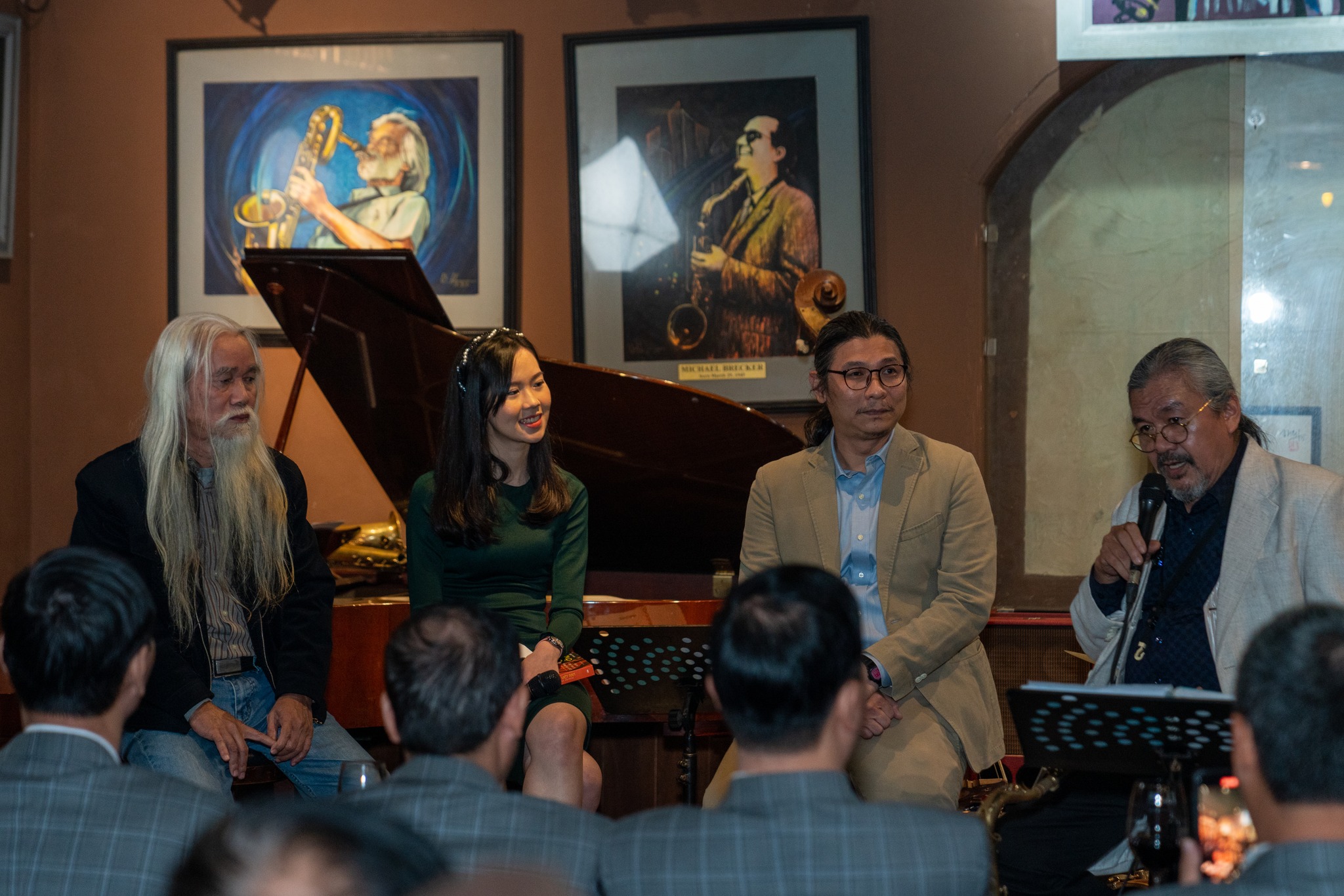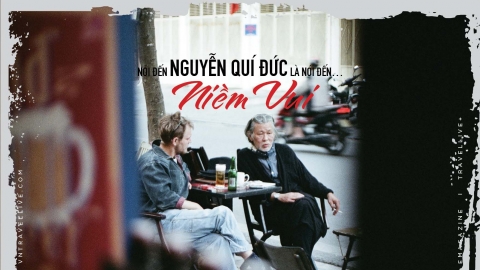One spring afternoon, at a cafe on the bustling Kim Ma street, a Travellive reporter had the opportunity to chat with young writer Hien Trang and hear her share more about femininity in literature. Let's see how she expresses her femininity!
Women's literature reduces the "ego".
Hien Trang is a female writer from the 90s generation. Born in 1993, she currently lives in Hanoi. In an interview with the magazine, she shared that she began writing her first book at the age of 22, with all the innocence and carefree spirit of a young person venturing into a field seemingly reserved for men: “When I was young, reading textbooks, I often saw that the writers were all men. That made me wonder, do women write? Of course, I also learned about female writers. But they usually wrote about very small, even trivial, issues, while men's literature often addressed grand themes.”
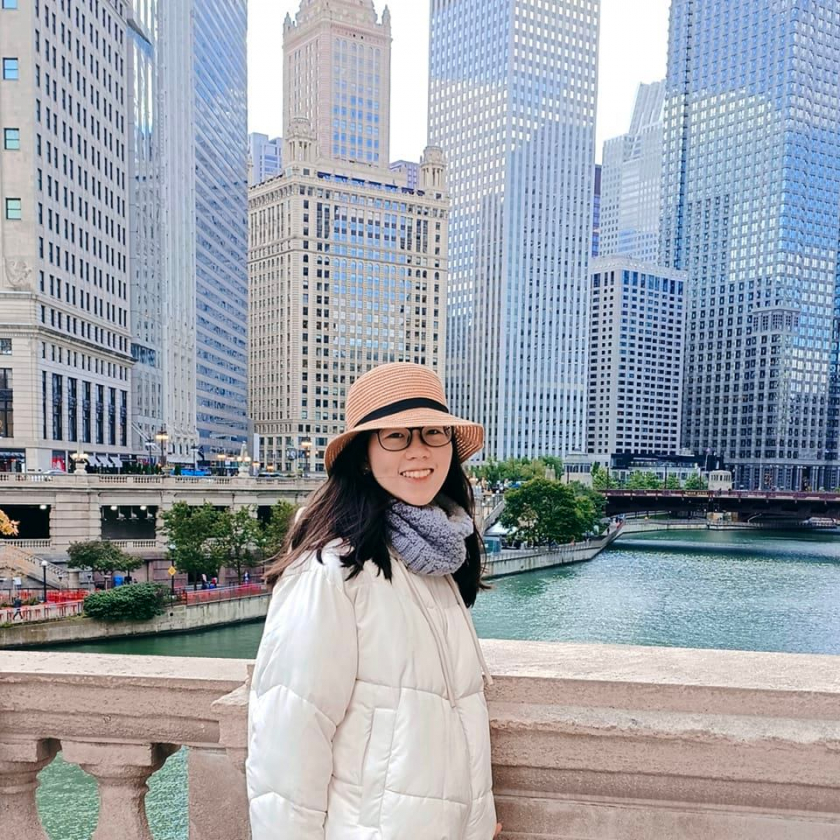
Writer Hien Trang and her reflections on femininity in literature.
“It wasn’t until much later, when I started reading Virginia Woolf, Margaret Atwood, and indeed J.K. Rowling, that I realized women’s literature is just as challenging as men’s,” Hien Trang believes that women have their own approach to these issues. Unlike men, women delve into every detail, exploring even the most “trivial” things while still maintaining the effectiveness of their writing. The way they convey their message to the reader has a captivating quality that men may not necessarily possess: “Their natural femininity allows them to avoid shouting about their enormous, grandiose egos. I appreciate the sensitivity of women's literature; they have a different linguistic structure. Men see things vertically, while women see them horizontally. For example, with Annie Ernaux, I remember reading a diary entry where she wrote about dropping a contact lens on her lover's body. I think only women could write about such details, invisible yet haunting.”
Women's literature tells the story of their lives.
Hien Trang believes that every woman has her own story, and the storytelling style of female writers is unique: “There are many types of women, and there are no limits to femininity. Screenwriter Binh Bong Bot once told me something like, 'Your writing has a lot of masculinity, while mine has a lot of femininity; when you write, you're a man and I'm a woman.' That doesn't mean I'm not a female writer and Binh isn't a male writer. I think if a woman tells the story she wants to tell, that's already a story about femininity. Femininity leaves its fingerprint on everything it touches.”
She also argued that women's literature doesn't necessarily have to be about women: "I think for every writer there's only one principle: we want to tell this story because we can't bear not telling it. We are who we are and we don't need to try to be someone else, whether it's another man or another woman. For example, Rowling tells the story of a boy who becomes a hero, and that doesn't make her literature anything less than women's literature. We just need to be the woman we are, and that is feminism."
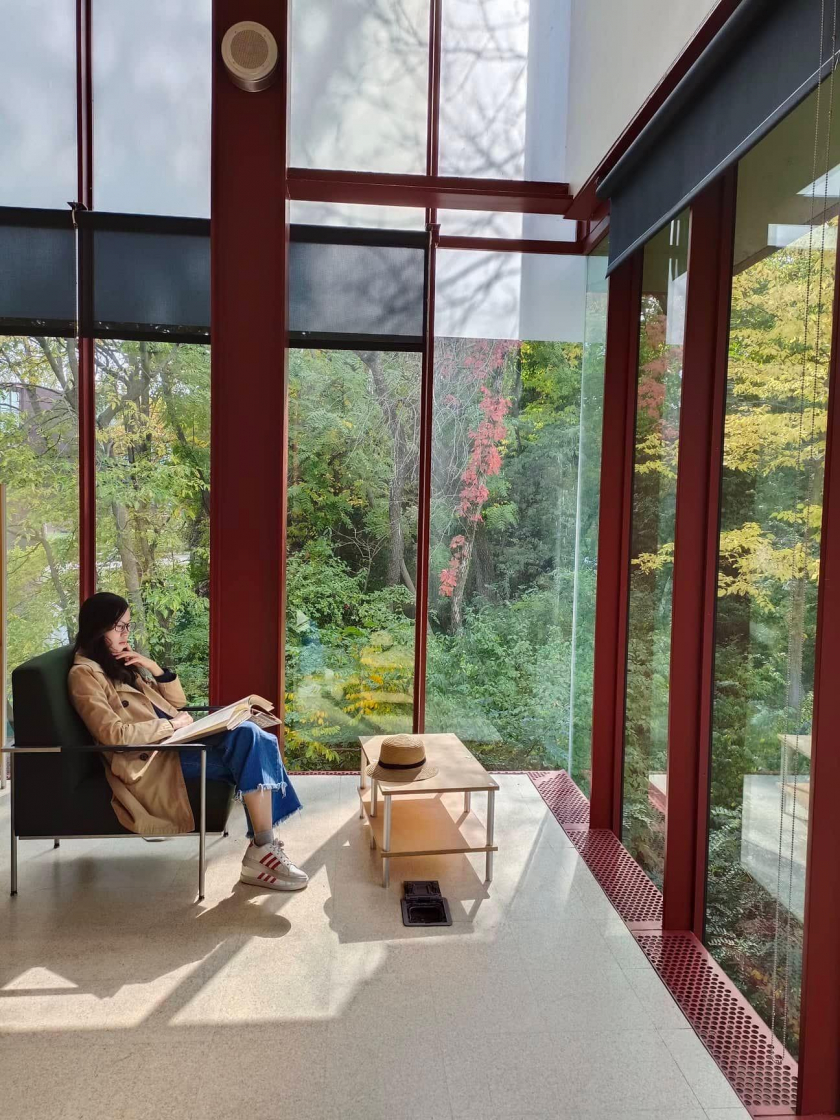
Hien Trang has many fresh and unique perspectives when talking about literature.
Men have anima (feminine traits within men) and women have animus (masculine traits within women). Men may have a more logical and concise way of thinking, while women's thinking is more circuitous, but perhaps it's because they take a roundabout approach that they often overlook things others do. Both ways of thinking are good, and can even harmonize with each other.
"A woman who wants to write needs her own room."
Hien Trang shared more about her writing journey. She loves reading and inherited her love of literature from her family, especially her grandmother. She always writes books with the mindset that "this is my first and last book," but somehow her literary journey has reached eight years: "Life has given me many senior colleagues in the profession, people who have brought me many new opportunities that I never imagined. If it weren't for them, I might be doing something else, something more boring. Now I write all kinds of things, short stories, novels, essays, even poetry. I try not to just write for fun like before, but to treat writing as a profession. When you're in a profession, you have to be more serious, you can't be like a snake eating its own tail; you have to keep learning so you don't depend on inspiration. You always have to have inspiration; as soon as you sit down at your desk, there must be it."
Continuing the conversation about literature, Hien Trang mentioned the female writer Virginia Woolf and recalled her famous quote: "A woman who wants to write must have her own room."
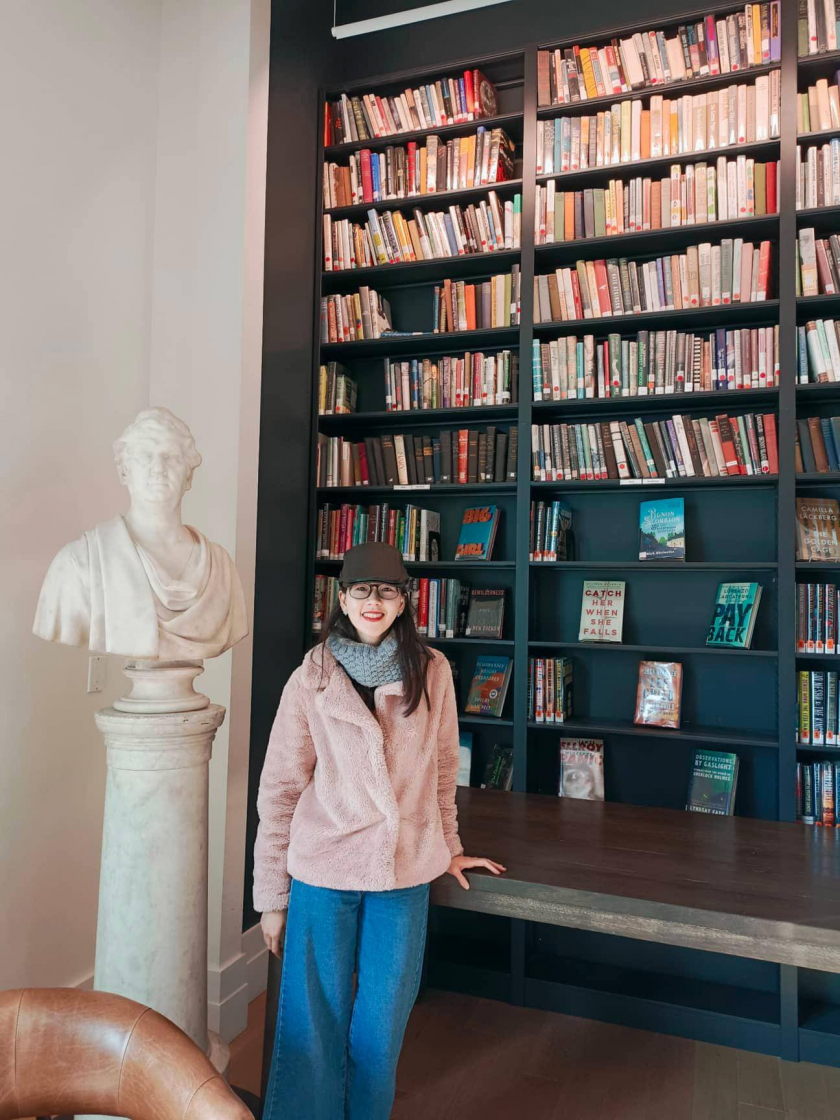
Every woman needs her own room, not just a writer.
Indeed, for every female writer, having a comfortable writing space and a dedicated place for creative work is of paramount importance. Hien Trang shared more about this: “Having a private room means having two things: privacy and basic financial resources. People say literature is a difficult path, and although I haven't found it too difficult yet, I think having such conveniences is like a soft pillow to lean on whenever you want to give up.”
Setting aside general opinions about women and femininity in literature, Travellive hopes that this article can offer readers fresh perspectives and help us better understand women in contemporary literary life.

 VI
VI EN
EN



